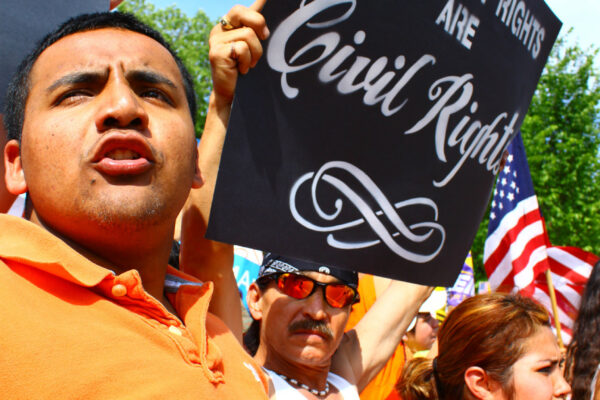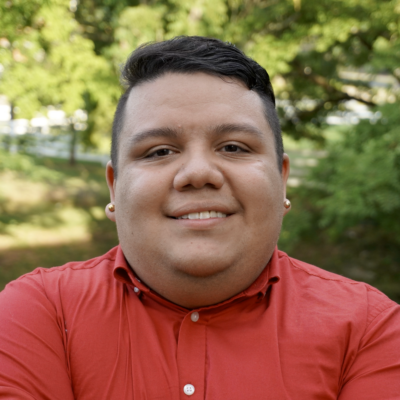In June, Vice President Kamala Harris addressed a crowd of Guatemalans and told them “do not come” to the U.S. I was disappointed, but not surprised. Too many of our elected officials—Republican and Democrat alike—have a fundamental misunderstanding about immigration: that immigrants who come here undocumented are making an easy choice. For my family, and so many others, there was no choice, and it certainly wasn’t easy. If we hadn’t fled our native countries, we’d be dead.
In my native country of El Salvador, my father and grandfather owned clothing and transportation businesses. Their success allowed my parents to afford many luxuries. But when I was five, a local gang kidnapped my dad and grandpa for ransom. We got them home safely, emptying our bank account in the process. Worse, there was now a target on our backs. We tried to do “the right thing” by requesting asylum at the American Embassy, but we were denied. With our lives in danger, my parents applied for a U.S. tourist visa, packed whatever belongings would fit in two suitcases and flew to the U.S. When those visas expired, we remained here undocumented.
I became a DACA recipient during my junior year of high school and it changed everything. I no longer lived in fear of deportation. I could get a driver’s license and a job to help pay for college. I obtained a bachelor’s degree in Political Science and Spanish and a master’s degree in Public Administration from Eastern Kentucky University. I’m now the State Manager for Save the Children Action Network and volunteer with organizations like the ACLU of Kentucky. But even under a new administration that pledged to make our immigration system more humane, I still don’t know what my future holds.
Now that a Texas court has declared DACA unconstitutional and blocked new admissions, Congressional action is the only way to give Dreamers true security and realize our full potential as Americans. Congress can add a permanent protection—a pathway to citizenship—for Dreamers, Temporary Protected Status (TPS) holders, undocumented farmworkers and other essential workers to the budget reconciliation. After all, 74 percent of Americans—including more than half of Republicans—support a permanent solution for Dreamers. So far, John Yarmuth is the only Kentucky legislator to express support for immigration measures in the reconciliation. Others must step up.
The DACA program has been around for nine years. We are no longer “the DACA kids.” Most of us are reaching our late 20s and mid-30s. We have U.S. citizen children. If DACA ends, nearly 256,000 U.S. citizen children will be affected by the potential loss of one or both parents.
We have homes, careers, and lives like our U.S. citizen peers. Nearly half of us are essential workers, who cared for American families throughout the pandemic, according to the immigration nonprofit New American Economy. More than 4,200 Dreamers treat patients in local Kentucky hospitals, care for our elderly and work jobs across the state’s food supply chain. Kentucky Dreamers pay $25 million in taxes and hold $75 million in annual spending power. We grew up in Kentucky neighborhoods, attended Kentucky schools and contribute to Kentucky’s community and economy. Still, we live in constant fear.
Giving Dreamers a pathway to citizenship is just one aspect of the immigration reform this country — and those who have made it their country — needs. If there was a line to citizenship, I would be the first one in it. I have made the U.S. my home in my heart, and in all that I do. Yet, the U.S. does not treat me — or protect me — as one of its own. Congress has the unique opportunity to take action on immigration, starting with adding, at minimum, permanent protections for Dreamers. There is no time to lose. Thousands of hard-working, honest, contributing members of Kentucky’s society — like me — are depending on it.
Omar Salinas-Chacón serves as equity officer on the Board of Directors of the ACLU of Kentucky and is the Kentucky State Manager at Save the Children Action Network. He lives in Lexington and is an alumni of Eastern Kentucky University. This letter appeared in the Lexington Herald-Leader, The State Journal, and other Kentucky publications.


